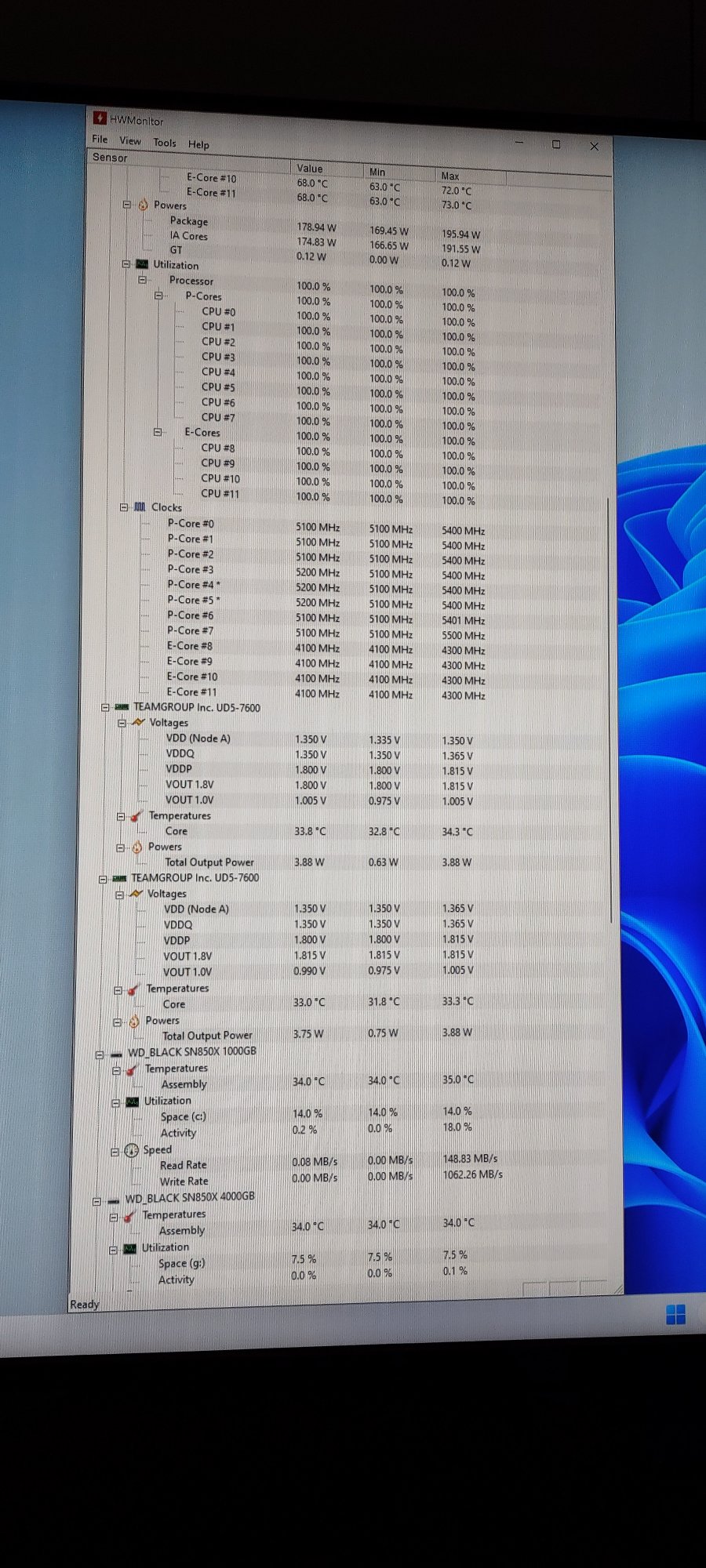xDiVolatilX
2[H]4U
- Joined
- Jul 24, 2021
- Messages
- 2,526
Hey fellas,
Any of us running 48GB (2x24GB) high frequency on Z790 platforms?
If so what speed? Brand of RAM? Brand of motherboard?
I want to see what the faster RAM kits are generally working with XMP out the box for most Z790 boards?
I know every CPU has IMC lottery and the board has variance also. I'm trying to see what is the fastest kits enthusiasts are having the best results with?
For example I'm looking at a 7600 48GB kit from teamgroup
TEAMGROUP T-Force Delta RGB DDR5 Ram 48GB (2x24GB) 7600MHz PC5-60800 CL36 M-DIE Desktop Memory Module Ram for 600 700 Series Chipset XMP 3.0 Ready Black - FF3D548G7600HC36EDC01 https://a.co/d/7JEZEB8
Or a 7200 48GB kit like this one
TEAMGROUP T-Force Delta RGB DDR5 Ram 48GB (2x24GB) 7200MHz PC5-57600 CL34 M-DIE Desktop Memory Module Ram for 600 700 Series Chipset XMP 3.0 Ready Black - FF3D548G7200HC34ADC01 https://a.co/d/jiwCR26
What are you guys running on Z790? Not interested in 32GB kits though only 48GB and looking to see which kit runs out the box on XMP no tweaking.
Any of us running 48GB (2x24GB) high frequency on Z790 platforms?
If so what speed? Brand of RAM? Brand of motherboard?
I want to see what the faster RAM kits are generally working with XMP out the box for most Z790 boards?
I know every CPU has IMC lottery and the board has variance also. I'm trying to see what is the fastest kits enthusiasts are having the best results with?
For example I'm looking at a 7600 48GB kit from teamgroup
TEAMGROUP T-Force Delta RGB DDR5 Ram 48GB (2x24GB) 7600MHz PC5-60800 CL36 M-DIE Desktop Memory Module Ram for 600 700 Series Chipset XMP 3.0 Ready Black - FF3D548G7600HC36EDC01 https://a.co/d/7JEZEB8
Or a 7200 48GB kit like this one
TEAMGROUP T-Force Delta RGB DDR5 Ram 48GB (2x24GB) 7200MHz PC5-57600 CL34 M-DIE Desktop Memory Module Ram for 600 700 Series Chipset XMP 3.0 Ready Black - FF3D548G7200HC34ADC01 https://a.co/d/jiwCR26
What are you guys running on Z790? Not interested in 32GB kits though only 48GB and looking to see which kit runs out the box on XMP no tweaking.
As an Amazon Associate, HardForum may earn from qualifying purchases.
![[H]ard|Forum](/styles/hardforum/xenforo/logo_dark.png)
